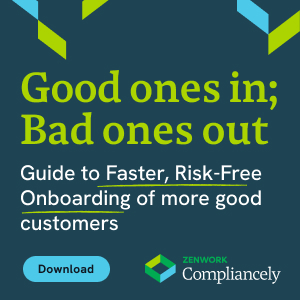The Future of AML in Identity Verification

Identity verification is, without a doubt, one of the most important compliance tools for businesses in the 21st century. In a world of relentless competition and unpredictable market scenarios, identity verification experiences enable businesses to prevent risk and its repercussions.
Businesses essentially focus on the KYC ecosystem to verify the identities of the profiles. But if you take it a step ahead, you will be able to see how identity verification impacts AML compliance and helps narrow the probability of risk to a great extent.
The following will briefly discuss the impact of identity verification on AML and how the future of the AML compliance landscape looks.
What Is Identity Verification?
Identity verification is the process of verifying the identities of the incoming profiles. Be it individuals or entities, identity verification enables businesses to validate the real identities of profiles and makes way for assessing risk. Further, it helps you with validating the credibility of a profile.
For example, when you plan on onboarding an independent contractor, you obtain the vendor’s TIN (taxpayer identification number) and legal name or DBA (Doing Business As) through a W-9 form. These details are necessary for checking the real identities of the profile.
For this purpose, IRS TIN Matching – a simple TIN match/ TIN lookup or TIN check is used. TIN verification enables you to check if the vendor you plan on onboarding is as legitimate as they claim to be.
If the furnished identities match the federal records, the vendor is verified. If the identities do not match, the details provided by the vendor are either invalid or incorrect.
This process of obtaining the identities and validating the obtained identities against the authorized data lists is called identity verification. KYC and customer identification procedures dictate that businesses must obtain proof of identification during the onboarding process to assess and prevent risk.
Identity verification makes way for due diligence, an important part of the compliance ecosystem, which allows you to validate and investigate the credibility of a profile as feasible but within reason.
What Is AML Compliance?
Anti Money Laundering compliance is a directive of the international regulatory bodies, such as FATF, EU, and more, which signifies the importance of KYC to reduce the misuse of the financial ecosystem.
Money laundering is one of the key concerns for the BFSI industries which deal with high volume monetary transactions. Previously, the identities of the parties involved in such high-volume transactions were not disclosed due to privacy concerns. However, after the introduction of the AML directives, it was mandated to accelerate transparency of the transactions and its source accounts – disclosing the real identities of the parties involved.
Many banks in the past have been persecuted and penalized for providing a safe haven to money launderers and terrorism financiers. The incorporation of AML directives enables the BFSI industries with risk prevention and identity transparency.
Identity verification alone plays a significant role in preventing banks and businesses from associating with money launderers. Complying with the AML directives (which heavily depend on identity verification) allows businesses to validate the identities of their customers and ascertains in keeping track of the sources of funding, ultimate beneficiaries, geographical presence of the business (and its transactions), and other critical elements.
How Are Identity Verification And AML Compliance Related?
AML compliance is dependent on identity verification. The very mechanism of identity verification, which requires businesses to obtain the identities with substantial proof, and validate the identities against authorized data lists, enable compliance.
So, in a way, compliance is actually dependent on identity verification and without which, the compliance ecosystem could be incomplete.
For businesses, in order to achieve and establish compliance, a series of verification, validation, and identification experiences are essential. The inherent nature of identity verification proves that the outcome of risk assessments is dependent on the verification experiences it brings.
Compliancely’s Identity Verification API For AML Compliance
Compliancely, a federal-compliant identity verification infrastructure enables enterprise and retail industries with real-time identity verification experiences.
Right from identity verification, sanction screening, and compliance-driven experiences, your identity validation requirements are met efficiently and effectively with Compliancely.
A future-first identity verification infrastructure, Compliancely is dynamic and enables you to verify the identities in real-time and automatically re-screens the identities as and when the source data lists (federal data lists, such as IRS) are updated. This means accelerated accuracy and real-time access to the latest information.
The future of AML compliance requires faster and more effective solutions to tackle the high volume of profiles that enterprise industries deal with every day. Compliancely’s API, extended priority service for business entities, enables bulk identity verification checks, which can be customized.
Compliancely enables the following identity experiences.
Tax Compliance
- Real-Time TIN and Name Match
- IRS Tax-Exempt Org. Search
- FATCA List
- Address Validation
Business Compliance
- OFAC Watch List
- SOS Business Entity Search
- Specially Designated Nationals
- Excluded Individuals and Entities
- Politically Exposed People
Security Compliance
- Consolidated Sanctions
- Arms Export Control Act
- Foreign Sanctions Evaders List
- European Sanctions List
- Excluded Parties List
- Denied Persons List
- Designated Foreign Terrorist Organizations
- Death Master File
What’s more? Compliancely is highly scalable, and this means you can search and verify millions of profiles within seconds.
Compliancely’s API experiences further enhance your identity verification requirements and enable you to verify profiles in bulk saving you time and effort.

